Common Skin Issues in the Elderly + Top Skin Care Tips
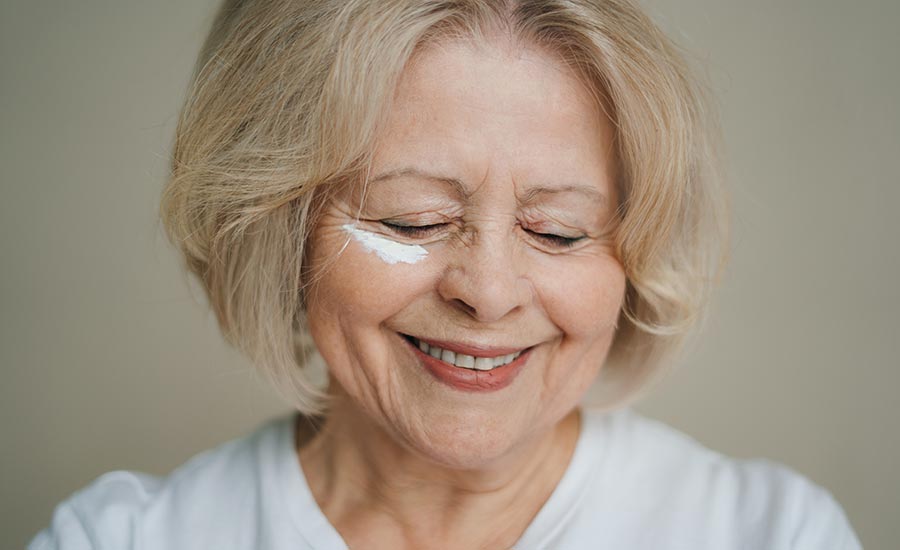
As your loved one ages, their skin naturally changes — it becomes thinner, less oily, and elastic, and bruises more easily than when they were younger.
In addition, your elderly loved one might notice new skin issues that weren’t present before, such as dry patches, age spots, skin tags, and deeper wrinkles.
If you’re caring for a loved one who is concerned about their skin, encourage them to adopt a gentle skincare routine tailored to their needs and seek professional care from reliable senior care services, such as Always Best Care.
We’ll cover everything you need to know about “old people skin”, including common skin conditions and skin care tips for the elderly.
Table of Contents
Common Skin Issues in the Elderly
As your elderly loved one ages, their skin changes, making them more susceptible to various skin conditions.
Dry Skin and Itching
As people age, their skin produces less oil, leading to dryness and itching.
Dry skin, also known as xeroderma or xerosis, is particularly common in the elderly. It can be exacerbated by factors including low humidity and certain medications, such as antihistamines, cholesterol, and blood pressure drugs.
Bruises
An elderly individual’s skin is more prone to bruising due to thinner blood vessel walls and less subcutaneous fat. Even minor bumps or collisions can result in noticeable bruises that may take longer to heal.
Skin Tags
Skin tags are small, harmless, soft skin growths that typically appear on the neck and armpits.
While the exact cause of skin tags is unknown, they commonly develop due to skin friction, especially in areas prone to rubbing against skin or clothing, such as body folds.
Factors such as genetics, obesity, and conditions like diabetes may also increase the likelihood of skin tags.
Age Spots
Age spots, also known as liver spots, are flat, brown spots that develop due to long-term sun exposure.
They are commonly found on areas like the face, hands, and arms.
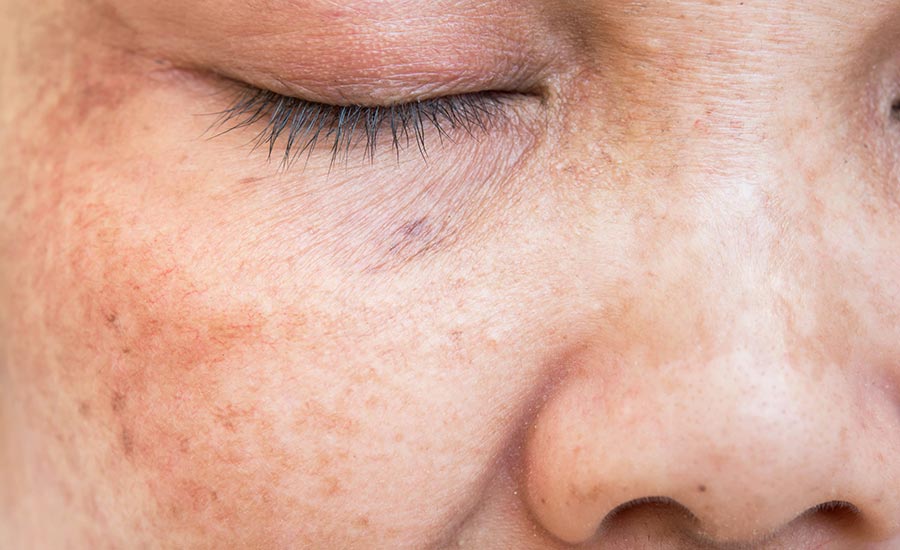
Skin Cancer
Skin cancer is a condition characterized by the abnormal growth of skin cells, which is often triggered by exposure to ultraviolet (UV) radiation from the sun or tanning beds.
Regular skin checks are crucial for early detection and treatment.
Benefits of Skin Care for the Elderly
Maintaining a regular skincare routine offers significant benefits for the elderly, including:
- Promotes healthy skin: As skin ages, it becomes thinner and loses fat, making it less plump and smoother. A consistent skincare regimen can combat dryness and help the skin repair itself, keeping it healthier and more resilient. Regular cleansing and moisturizing can also help maintain your loved one’s skin’s integrity and elasticity.
- Minimizes the risk of skin cancer: Due to prolonged sun exposure over the years, your loved one may face an increased risk of skin cancer — one of the most common cancers in older adults. In fact, 1 in 5 Americans will develop some form of skin cancer by age 70. Protecting the skin from excessive sun exposure by using sunscreens, wearing protective clothing, and avoiding the sun during peak hours significantly decreases the risk of developing this type of cancer.
- Reduces the risk of skin infections: Clean, well-moisturized skin is less prone to cracking, which can become an entry point for infections. Regularly using gentle skin products can help protect and strengthen the skin’s natural barriers.
- Prevents chronic skin conditions: Effective skin care can help identify early signs of skin issues such as ulcers or bedsores.
- Improves blood circulation: Massaging the skin while applying creams and other products can improve blood flow. This increased circulation can help heal minor abrasions and support normal skin functions, which in turn promotes overall skin health.
- Boost self-esteem and comfort: Maintaining skin integrity plays a crucial role for your loved one’s quality of life and self-esteem. Healthy skin can enhance their appearance by promoting a clearer, more vibrant complexion, boost their sense of well-being by alleviating anxiety over visible skin conditions, and minimize discomfort from issues like dryness, itchiness, or irritation.
Skin Care Routine for Seniors
While aging skin can bring feelings of discomfort and anxiety, it’s important to encourage your loved one to accept and embrace their natural changes with positivity.
Accepting aging skin can foster improved self-confidence and a deeper appreciation for the beauty of aging.
When caring for their skin, motivate your loved one to:
- Apply fragrance-free moisturizer to your skin every day to combat dryness. To get the best results, moisturize right after showering or bathing, as this is when your skin retains the most moisture.
- Use products that contain hydrating ingredients such as hyaluronic acid, glycerin, or ceramides, which can help maintain the skin’s barrier.
- Avoid sun exposure between 10am and 4pm, when the sun’s UV rays are the strongest. During these hours, the risk of harmful effects from UV radiation is significantly higher. If you need to be outdoors, seek shade as much as possible and wear protective clothing such as long-sleeved shirts, pants, and a wide-brimmed hat to shield your skin.
- Apply sunscreen with SPF 30 or higher to shield against both UVA and UVB rays. SPF that is lower than 30 can provide inadequate protection against harmful UV rays, leaving your skin vulnerable to sun damage, an increased risk of sunburn, and skin cancer. Reapply the sunscreen every two hours or when you’re swimming or sweating.
- Wear long sleeves, pants, or a wide-brimmed hat to block the sun’s harmful rays, which can aggravate skin aging and increase the risk of skin cancer.
- Wear gloves during housework and gardening to protect your skin, as these activities can expose your skin to harsh chemicals and sunlight, which can irritate and dry it out.
- Stay hydrated by drinking around eight to 10 glasses of water and eating fruits and vegetables with high water content, such as cucumbers and watermelon, which can also contribute to overall hydration.
- Limit caffeine intake to improve skin health. Consuming too much — more than 400mg — caffeine can dehydrate the skin, making it look dull and tired.
- Use gentle hygienic products that don’t strip natural oils from the skin. Avoid skincare products containing alcohol, dyes, or fragrances, as these can be irritating and lead to dryness.
- Maintain a healthy diet, as nutrition plays a critical role in skin health. Eat meals rich in omega-3 fatty acids (like salmon and walnuts), antioxidants (found in berries and leafy greens), and vitamins C and E (in citrus fruits and almonds) can promote a healthier skin appearance by fighting free radicals and supporting skin repair.
- Use a humidifier in rooms where you spend a lot of time, such as the bedroom, to add moisture to the air. This can be especially beneficial in the winter months or in dry climates where indoor air can become dehydrating to the skin.
- Check your skin regularly to identify skin issues early on. Look for new growths, changes in moles, persistent sores, or changes in skin coloration.
- Schedule regular visits with a dermatologist for professional screenings. If you notice any concerning changes, like new moles, changes in the size or shape of existing moles, irregular borders, uneven coloring, or any unusual growths on your skin, consult them immediately.
- Limit hot water exposure, as hot water can remove natural oils from the skin faster compared to warm or lukewarm water. Opt for shorter showers and baths and adjust the water temperature to be warm, which is less harsh on your skin.
- Wear soft clothing made from natural fibers like cotton, which are gentler on the skin. These allow your skin to breathe, reducing the risk of irritation and overheating.
- Quit smoking, as it can speed up skin aging by reducing blood flow and lowering oxygen levels in tissues. It can also help improve your skin’s tone and texture, maintain its elasticity, and minimize wrinkles and dullness.
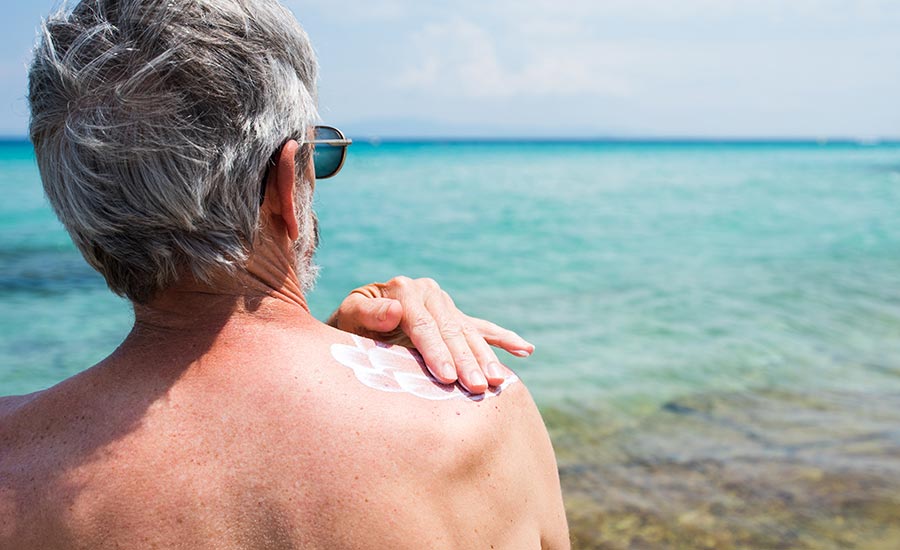
Explore Dependable Senior Care at Always Best Care
While certain skin changes are inevitable as people age, your loved one can take several steps to maintain healthy, youthful-looking skin and feel good for as long as possible.
At Always Best Care, our meticulously selected and experienced caregivers can help with your loved one’s personal hygiene routines to ensure they feel comfortable and well-cared for every day.
Our services include:
- In-home care: We provide round-the-clock assistance, including meal preparation, laundry services, companionship, and help with bathing, grooming, and dressing.
- Skilled home health care services: Available in specific areas, we create customized care plans for chronic conditions like diabetes and ongoing illness management. Our team of certified nurses, therapists, and home health aides is dedicated to offering comprehensive and convenient care plans.
- Specialized home care services: We facilitate daily social interaction and healthcare guidance directly from your loved one’s home. We take advantage of advanced technology such as personal emergency response systems, remote patient monitoring, and balance tracking, we efficiently manage symptoms and conditions.
- Respite care services: We offer flexible support, ranging from short breaks to extended care periods, giving you the opportunity to take a well-deserved break from caregiving responsibilities.
- Dementia care services: We provide compassionate care for your loved one with dementia, prioritizing their safety, comfort, and overall well-being.
- Senior living referral services: We can help you find the ideal senior living community for your loved one by matching their specific needs and location preferences with the best options.
- Veterans assistance program: We help veterans access financial aid for care as a gesture of appreciation for their service.
Final Notes on Skin Care for the Elderly
To recap, caring for elderly skin is crucial because it becomes more delicate and prone to problems with age.
Proper skin care can prevent dryness, itching, and discomfort, and reduce the risk of skin cancer, among other benefits.
At Always Best Care Senior Services, our compassionate staff delivers professional care and support to every patient.
Contact us to schedule a consultation and discover how we can greatly improve your loved one’s comfort and quality of life.


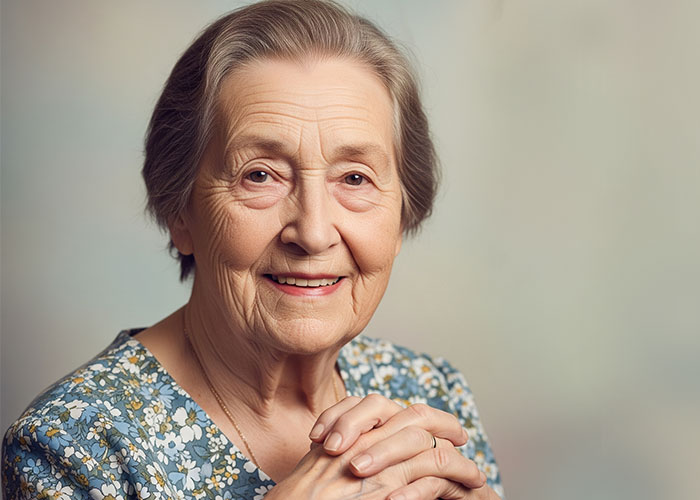
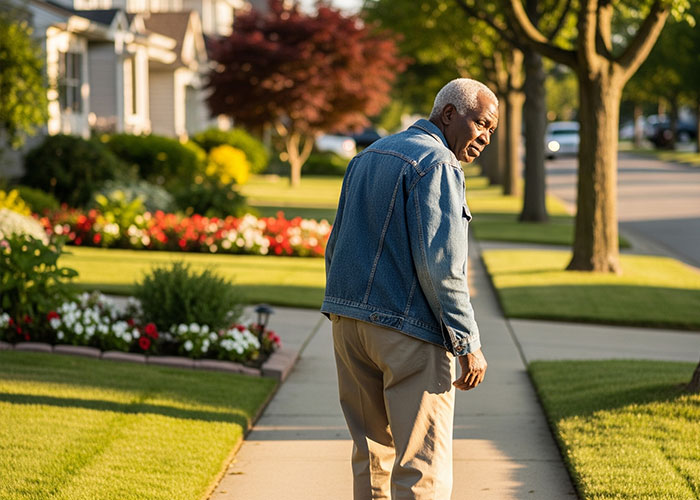
![10 Senior Living Technologies You Should Know About [+ FAQs]](https://alwaysbestcare.com/wp-content/uploads/2025/06/senior-living-technology-hero-image.jpg)
